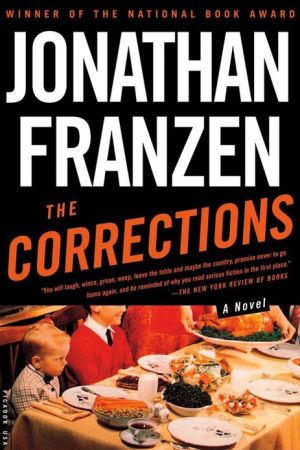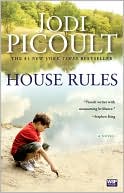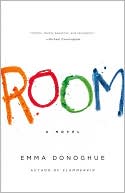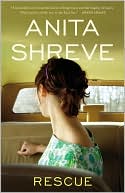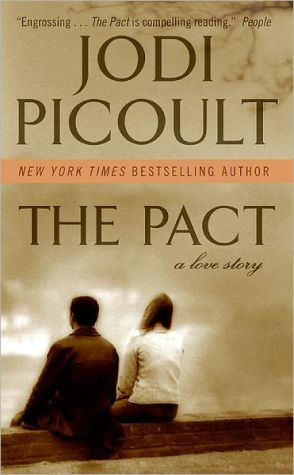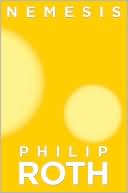The Corrections
Jonathan Franzen's The Corrections has taken the literary scene by storm, from its hilarious portrayal of a dysfunctional American family to its insightful jabs at the rat race of contemporary American life. This Barnes & Noble Reader's Companion gives you the full story behind The Corrections:\ \ What is Franzen's take on life in America today?\ What are the "corrections" Franzen refers to in the title?\ Why did Franzen balk at being picked for Oprah's Book Club?\ \ \ \...
Search in google:
Stretching from the Midwest at midcentury to the Wall Street and Eastern Europe of today, The Corrections brings an old-fashioned world of civic virtue and sexual inhibitions into violent collision with the era of home surveillance, hands-off parenting, do-it-yourself mental health care, and globalized greed. Richly realistic, darkly hilarious, deeply humane, it confirms Jonathan Franzen as one of our most brilliant interpreters of American society and the American soul.Miami HeraldWonderously devastating . . . In prose that is by turns suspenseful, brooding, and, oh yes, compassionate, Franzen unrolls the huge, bleak panorama of the Lamberts' past and present lives, their temptations, failures, mistakes and false hopes, their intimate acquaintance with the hot flash of selfishness and the sharp bitterness of rue.
The Madness of an autumn prairie cold front coming through. You could feel it: something terrible was going to happen. The sun low in the sky, a minor light, a cooling star. Gust after gust of disorder. Trees restless, temperatures falling, the whole northern religion of things coming to an end. No children in the yards here. Shadows lengthened on yellowing zoysia. Red oaks and pin oaks and swamp white oaks rained acorns on houses with no mortgage. Storm windows shuddered in the empty bedrooms. And the drone and hiccup of a clothes dryer, the nasal contention of a leaf blower, the ripening of local apples in a paper bag, the smell of the gasoline with which Alfred Lambert had cleaned the paintbrush from his morning painting of the wicker love seat.\ Three in the afternoon was a time of danger in these gerontocratic suburbs of St. Jude. Alfred had awakened in the great blue chair in which he'd been sleeping since lunch. He'd had his nap and there would be no local news until five o'clock. Two empty hours were a sinus in which infections, bred. He struggled to his feet and stood by the Ping-Pong table, listening in vain for Enid.\ Ringing throughout the house was an alarm bell that no one but Alfred and Enid could hear directly. It was the alarm bell of anxiety. It was like one of those big cast-iron dishes with an electric clapper that send schoolchildren into the street in fire drills. By now it had been ringing for so many hours that the Lamberts no longer heard the message of "bell ringing" but, as with any sound that continues for so long that you have the leisure to learn its component sounds (as with any word you stare at until it resolves itself into a string of dead letters), instead heard a clapper rapidly striking a metallic resonator, not a pure tone but a granular sequence of percussions with a keening overlay of overtones; ringing for so many days that it simply blended into the background except at certain early-morning hours when one or the other of them awoke in a sweat and realized that a bell had been ringing in their heads for so long as they could remember; ringing for so many months that the sound had given way to a kind of metasound whose rise and fall was not the beating of compression waves but the much, much slower waxing and waning of their consciousness of the sound. Which consciousness was particularly acute when the weather itself was in an anxious mood. Then Enid and Alfred -- she on her knees in the dining room opening drawers, he in the basement surveying the disastrous Ping-Pong table -- each felt near to exploding with anxiety.\ The anxiety of coupons, in a drawer containing candles in designer autumn colors. The coupons were bundled in a rubber band, and Enid was realizing that their expiration dates (often jauntily circled in red by the manufacturer) lay months and even years in the past: that these hundred-odd coupons, whose total face value exceeded sixty dollars (potentially one hundred twenty dollars at the Chiltsville supermarket that doubled coupons), had all gone bad. Tilex, sixty cents off. Excedrin PM, a dollar off. The dates were not even close. The dates were historical. The alarm bell had been ringing for years.\ She pushed the coupons back in among the candles and shut the drawer. She was looking for a letter that had come by Registered mail some days ago. Alfred had heard the mailman knock on the door and had shouted, "Enid! Enid!" so loudly that he couldn't hear her shouting back, "Al, I'm getting it!" He'd continued to shout her name, coming closer and closer, and because the sender of the letter was the Axon Corporation, 24 East Industrial Serpentine, Schwenksville, PA, and because there were aspects of the Axon situation that Enid knew about and hoped that Alfred didn't, she'd quickly stashed the letter somewhere within fifteen feet of the front door. Alfred had emerged from the basement bellowing like a piece of earth-moving equipment, "There's somebody at the door!" and she'd fairly screamed, "The mailman! The mailman!" and he'd shaken his head at the complexity of it all.\ Enid felt sure that her own head would clear if only she didn't have to wonder, every five minutes, what Alfred was up to. But, try as she might, she couldn't get him interested in life. When she encouraged him to take up his metallurgy again, he looked at her as if she'd lost her mind. When she asked whether there wasn't some yard work he could do, he said his legs hurt. When she reminded him that the husbands of her friends all had hobbies (Dave Schumpert his stained glass, Kirby Root his intricate chalets for nesting purple finches, Chuck Meisner his hourly monitoring of his investment portfolio), Alfred acted as if she were trying to distract him from some great labor of his. And what was that labor? Repainting the porch furniture? He'd been repainting the love seat since Labor Day. She seemed to recall that the last time he'd painted the furniture he'd done the love seat in two hours. Now he went to his workshop morning after morning, and after a month she ventured in to see how he was doing and found that all he'd painted of the love seat was the legs.\ He seemed to wish that she would go away. He said that the brush had got dried out, that that was what was taking so long. He said that scraping wicker was like trying to peel a blueberry. He said that there were crickets. She felt a shortness of breath then, but perhaps it was only the smell of gasoline and of the dampness of the workshop that smelled like urine (but could not possibly be urine). She fled upstairs to look for the letter from Axon.\ Six days a week several pounds of mail came through the slot in the front door, and since nothing incidental was allowed to pile up downstairs -- since the fiction of living in this house was that no one lived here -- Enid faced a substantial tactical challenge. She didn't think of herself as a guerrilla, but a guerrilla was what she was. By day she ferried matériel from depot to depot, often just a step ahead of the governing force. By night, beneath a charming but too-dim sconce at a too-small table in the breakfast nook, she staged various actions: paid bills, balanced checkbooks, attempted to decipher Medicare copayment records and make sense of a threatening Third Notice from a medical lab that demanded immediate payment of $0.22 while simultaneously showing an account balance of $0.00 carried forward and thus indicating that she owed nothing and in any case offering no address to which remittance might be made. It would happen that the First and Second Notices were underground somewhere, and because of the constraints under which Enid waged her campaign she had only the dimmest sense of where those other Notices might be on any given evening. She might suspect, perhaps, the family-room closet, but the governing force, in the person of Alfred, would be watching a network newsmagazine at a volume thunderous enough to keep him awake, and he had every light in the family room burning, and there was a non-negligible possibility that if she opened the closet door a cascade of catalogues and House Beautifuls and miscellaneous Merrill Lynch statements would come toppling and sliding out, incurring Alfred's wrath. There was also the possibility that the Notices would not be there, since the governing force staged random raids on her depots, threatening to "pitch" the whole lot of it if she didn't take care of it, but she was too busy dodging these raids to ever quite take care of it, and in the succession of forced migrations and deportations any lingering semblance of order was lost, and so the random Nordstrom shopping bag that was camped behind a dust ruffle with one of its plastic handles semi-detached would contain the whole shuffled pathos of a refugee existence -- non-consecutive issues of Good Housekeeping, black-and-white snapshots of Enid in the 1940s, brown recipes on high-acid paper that called for wilted lettuce, the current month's telephone and gas bills, the detailed First Notice from the medical lab instructing co-payers to ignore subsequent billings for less than fifty cents, a complimentary cruise ship photo of Enid and Alfred wearing leis and sipping beverages from hollow coconuts, and the only extant copies of two of their children's birth certificates, for example.\ Although Enid's ostensible foe was Alfred, what made her a guerrilla was the house that occupied them both. Its furnishings were of the kind that brooked no clutter. There were chairs and tables by Ethan Allen. Spode and Waterford in the breakfront. Obligatory ficuses, obligatory Norfolk pines. Fanned copies of Architectural Digest on a glass-topped coffee table. Touristic plunder -- enamelware from China, a Viennese music box that Enid out of a sense of duty and mercy every so often wound up and raised the lid of. The tune was "Strangers in the Night."\ Unfortunately, Enid lacked the temperament to manage such a house, and Alfred lacked the neurological wherewithal. Alfred's cries of rage on discovering evidence of guerrilla actions -- a Nordstrom bag surprised in broad daylight on the basement stairs, nearly precipitating a tumble -- were the cries of a government that could no longer govern. He'd lately developed a knack for making his printing calculator spit columns of meaningless eight-digit figures. After he devoted the better part of an afternoon to figuring the cleaning woman's social security payments five different times and came up with four different numbers and finally just accepted the one number ($635.78) that he'd managed to come up with twice (the correct figure was $70.00), Enid staged a nighttime raid on his filing cabinet and relieved it of all tax files, which might have improved household efficiency had the files not found their way into a Nordstrom bag with some misleadingly ancient Good Housekeepings concealing the more germane documents underneath, which casualty of war led to the cleaning woman's filling out the forms herself, with Enid merely writing the checks and Alfred shaking his head at the complexity of it all.\ It's the fate of most Ping-Pong tables in home basements eventually to serve the ends of other, more desperate games. After Alfred retired he appropriated the eastern end of the table for his banking and correspondence. At the western end was the portable color TV on which he'd intended to watch the local news while sitting in his great blue chair but which was now fully engulfed by Good Housekeepings and the seasonal candy tins and baroque but cheaply made candle holders that Enid never quite found time to transport to the Nearly New consignment shop. The Ping-Pong table was the one field on which the civil war raged openly. At the eastern end Alfred's calculator was ambushed by floral print pot-holders and souvenir coasters from the Epcot Center and a device for pitting cherries which Enid had owned for thirty years and never used, while he, in turn, at the western end, for absolutely no reason that Enid could ever fathom, ripped to pieces a wreath made of pinecones and spray-painted filberts and brazil nuts.\ Copyright © 2001 Jonathan Franzen
1A TOUR OF THE BOOK: an overview of the book Home for the Holidays: The Corrections ditches mistletoe and yuletide cheer for Baltic mobsters, talking turds, and drug-smuggling housewives. 21 JOURNEYS: the characters and their stories The Corrections We Make: Franzen shows us how each of our lives is a series of corrections-our attempts to correct the faults of our parents and the mistakes of our pasts. 31 POINTS OF VIEW: a conversation about The Corrections Bringing It All Back Home: Looking past the media storm, what do readers of The Corrections really think about the novel? 49 A WRITER'S LIFE: Jonathan Franzen's story Resurrecting the Great Novel: Franzen worked his way into the heart of the American literary scene with his fiction, his essays, and his stated goal of writing the next Great American Novel. 53 THE WORLD OUTSIDE: the Lamberts' 1990s America Keeping Up With the Lamberts: From St. Jude to Manhattan, Lithuania to a cruise ship, Franzen's characters can't escape the great American rat race. 57 A BRIEF HISTORY: the critics respond to The Corrections The Oprah Wars The Corrections brought Franzen fame and fortune-and a ten-round grudge match with the most powerful woman in media. 61 EXPLORE: Other Books of Interest Books to consider reading next: In writing The Corrections and his earlier novels, Franzen has turned to a number of American literary giants for inspiration.
\ From Barnes & NobleThe Barnes & Noble Review\ Novels dealing with domestic crises and familial dysfunction are part of a long and honorable tradition. (As Tolstoy said in 1877, "All happy families are alike. Every unhappy family is unhappy in its own way.") Jonathan Franzen, gifted author of The Twenty-Seventh City and Strong Motion, now claims a place in that tradition with The Corrections, his funny, desolating, unsparing account of a divided, deeply unhappy American family.\ \ \ At times evocative of two classic portraits of domestic and spiritual malaise, Richard Yates's Revolutionary Road and Joseph Heller's Something Happened, The Corrections ultimately stands squarely on its own. The narrative focuses on three critical months in the history of the Lambert family, longtime residents of the fictional midwestern city of St. Jude. Albert, the patriarch, is a once-formidable figure whose frequent rages and implacable rectitude have dominated life in the Lambert household for nearly 50 years. As the novel begins, Albert had just been diagnosed with Parkinson's disease. Against the perfectly articulated background of his physical and mental deterioration, Enid -- Albert's long-suffering, perpetually dissatisfied wife -- develops a single, overriding obsession: to see her scattered family return to St. Jude for one last Christmas together.\ The bulk of the story depicts the disordered lives of the three departed Lambert children: Gary, a grasping, increasingly unhappy investment banker with family troubles of his own; Chip, a former professor and failed screenwriter who drifts into a dangerous, highly illegal investment scam in economically depressed Lithuania; and Denise, a gifted chef lost in a maze of sexual confusion and "moral chaos." In time, and by various circuitous routes, all three will find their way to that climactic Christmas in St. Jude, and to a final confrontation with the ghosts of the past, a confrontation that is painful, tragic, and liberating, all at once.\ Supremely intelligent and deeply affecting, The Corrections anatomizes both a family and a society, gracefully illuminating the inner lives of a handful of characters struggling to escape "the givens of the self," and to find and apply "the corrections" that will transform and redeem their lives. Through a combination of wit, empathy, and precise observation, Franzen himself transforms the familiar materials of domestic drama into something luminous and new, giving us a powerful, often beautiful novel of clear -- and possibly enduring -- significance. (Bill Sheehan)\ \ \ \ \ \ GQMore engaging and readable than other chilly magnum opuses in the same league . . . Unlike his Big Book peers, [Franzen] wants things tidy — not in the middle, maybe, but at the end. The chaos-theory math wizards of antimatter fiction don't often show such good manners, such politeness, and it's touching to find it here. Not just dazzle —warmth.\ \ \ Francine ProseDazzling . . . electric . . . There's something thrilling, heartening, and inspiring about seeing life revealed so accurately, so transparently — and finally, so forgivingly. —O Magazine\ \ \ \ \ Vogue'Honestly' hype[d] . . . novel of extraordinary merit . . . Franzen's ability to infuse each character with such appealing vulnerability. Which, of course, is the redemptive hat trick of great literature: The Lamberts may be humming with unhappiness, but we are left humming with their — and our own — humanity.\ \ \ \ \ FortuneThe novel of the year.\ \ \ \ \ Stewart O'NanFranzen is a wizard, endlessly inventive in his thematic connections and scene setting . . . The Corrections is a wide-open performance showcasing the full range of his skills and his eclectic intelligence . . . [It] recalls no novel so much as John Cheever's The Wapshot Scandal. The Corrections is just as funny and sad and smart as that masterpiece, and Franzen, like Cheever, reminds us of the timelessness of human folly. —Atlantic Monthly\ \ \ \ \ Adam BegleyAgreeably accessible, . . . poised halfway between postmodern chic and plain old-fashioned storytelling. It sucks you into the vortex of family life, the whirling blend of happy and unhappy; it lands you in the sticky goo of mingled love and hate. What Mr. Franzen does — brilliantly — is to risk sentimentality to get at emotional truth. —New York Observer\ \ \ \ \ Poets and Writers[The Corrections is] Franzen's most autobiographical novel, his most engrossing (do not be surprised to find yourself trying to read it all in one sitting, and, stylistically, his most lyrical. In its gorgeous, sweeping scope and the sympathy of its tone, it owes more to Tolstoy than to Pynchon, but ultimately the novel offers up pleasures that are utterly Franzenian; a sense of exhilaration permeates The Corrections, which is, in part, the exhilaration of a writer who has broken free of his masters.\ \ \ \ \ TimeWhat we're asking is whether Jonathan Franzen's The Corrections will become that rare thing, a literary work that everybody's reading? A lot of people are saying yes.\ \ \ \ \ New York Times Book ReviewWe were rocking: I only put the book down again when my life needed tending to . . . I can't scrape together much outrage when I'm basically having a good time . . . If you don't end up liking each one of Franzen's people, you probably just don't like people . . . It's often the microfelicities that keep you barreling through The Corrections toward its larger satisfactions. Wordplay worthy of Nabokov . . . Tiny, revelatory gestures . . . Magically precise images . . . Knowing one-liners . . . Franzen writes with convincing authority about the minutiae of railroads, clothing, medicine, economics, industry, cuisine, and Eastern European politics, and he knows just when to push his conceits over the top . . . But he also knows his way around more intimate territory . . . No one book, of course, can provide everything we want in a novel. But a book as strong as The Corrections seems ruled only by its own self-generated aesthetic: it creates the illusion of giving a complete account of a world, and while we're under its enchantment it temporarily eclipses whatever else we may have read. But I guess that is everything we want in a novel — except, when it's rocking along, for it never to be over. In that respect, The Corrections ends as disappointingly as it began. And in that respect only.\ \ \ \ \ Philadelphia InquirerLet's not mince words or pussyfoot with fancy lit-crit lingo. This is a great book. It needs to be read . . . A panoramic work that frequently zeroes in, with almost claustrophobic clarity, on human foibles . . . A huge, ambititious, powerful, funny, imaginative yet realistic novel. This book is a gift.\ \ \ \ \ Boston GlobeA big, showy powerhouse of a novel, revved up with ideas but satisfyingly beholden to the traditions of character and plot . . . Smart and boisterous and beautifully paced . . . Franzen's epic study in irony suggests Wolfe running into Don DeLillo . . . The greatest strength of The Corrections, and there are many, is its skillful narrative relativism, the way it delivers one version of the truth about a character, then fleshes out that reality over time into something larger and more complex . . . His rendering [of the autumnal prairie of millennial America] is frighteningly, luminously authentic.\ \ \ \ \ the Dallas Morning News[Combines] the deadpan dazzle and intricate ironies of Don DeLillo with the more homey concerns of Anne Tyler . . . There is bravura writing here, wizardly wordplay, sharp insights.\ \ \ \ \ Miami HeraldWonderously devastating . . . In prose that is by turns suspenseful, brooding, and, oh yes, compassionate, Franzen unrolls the huge, bleak panorama of the Lamberts' past and present lives, their temptations, failures, mistakes and false hopes, their intimate acquaintance with the hot flash of selfishness and the sharp bitterness of rue.\ \ \ \ \ Portland OregonianRemarkable . . . The best comparisons are to David Foster Wallace's Infinite Jest and Don DeLillo's Underworld . . . but The Corrections has more heart.\ \ \ \ \ Raleigh News and ObserverA big, intelligent and mostly compassionate novel that's so much fun one hates to see it end . . . A novel of our times . . . Think of the book as a blend of postmodern meganovel and Victorian family saga.\ \ \ \ \ St. Louis Post-DispatchThe best American novel published to date this year.\ \ \ \ \ NewsweekThe last 100 pages of The Corrections is an unforgettably sad, indelibly beautiful piece of literature . . . [Franzen] is a writer with talent to burn.\ \ \ \ \ Book MagazineFranzen's third novel—his first in almost a decade—is not only the author's funniest and most focused work, it also hits harder and deeper. Not unlike 1988's The Twenty-Seventh City and 1992's Strong Motions, The Corrections presents a microcosm of a modern culture that has gone horribly wrong. It describes a world controlled by vectors of conspiracy where political, economic and media powers merge; it is a place beset by moral contradictions too troubling to acknowledge, let alone resolve. Between the mood swings of a haywire stock market and the neuroses of a society eager to extend the pill-popping effectiveness of Zoloft, Franzen combines the satirist's eye with a tragic soul. He's the novelist as social prophet, master of insidious plausibility. \ \ The Corrections features the Lamberts of St. Jude ("patron saint of lost causes"), who have found themselves psychospiritually adrift between the traditional rectitude of Midwestern repression and the anything-goes emptiness of technological progress. As the rest of the country turns increasingly giddy over the economy, it seems that only the Lamberts are bottoming out. The family patriarch, Alfred, is a retired railroad executive (his company has consolidated, his industry is dying) suffering from Parkinson's disease. His dutiful wife, Enid—oblivious to some essential truths about her relationships with her husband and her children—can't provide the care he needs, but she despairs over any suggestion that they sell the family home. It's too late for assisted living, she insists: "Those places won't let you in if you have a condition like Dad's." Caught in the Catch-22 of elderly care, she pins all ofher hopes on a cruise that her husband is in no condition to take, while pleading for a Christmas reunion in St. Jude with the kids, a traditional celebration that none of them is likely to enjoy. \ \ For the three dysfunctional Lambert offspring, family life is a series of power plays. Banker Gary, the oldest son, denies that he's suffering from clinical depression, while his wife indulges their children, following the rules in her copy of Hands-Off Parenting: Skills for the Next Millennium. Chip, the middle child, lost his professorship after a student seduced him, and now he must reconcile his contempt for money with his discomfort at having so little of it. Denise, the baby, is a celebrity chef who sees sexual appetite as an illness (for Chip, sex is more like medication) and is more concerned with others' needs than her own. \ \ Amid a society addicted to the quick fix, there seem to be no easy answers to the Lamberts' problems. But it is the marketing of a mind-altering drug called Corecktall (not to be confused with a similarly named laxative) that promises a transformation beyond their dreams. It could provide a cure for Alfred (who may have played some part in the drug's development, though Franzen lets this subplot hang), while offering an investment opportunity upon which Gary is eager to pounce. \ \ Spending an afternoon on the sidelines at the Corecktall investors' convention, Gary vacillates between envy and contempt. "Just a few years ago the room would have been a jungle of blue pinstripe, ventless Mafiawear, two-tone power shirts and tasseled loafers. But now, in the late maturing years of the long, long boom, even young suburban galoots from New Jersey were buying hand-tailored Italian suits and high-end eyewear. So much money had flooded the system that twenty-six-year-olds who thought Andrew Wyeth was a furniture company and Winslow Homer a cartoon character were able to dress like Hollywood aristocracy.... All around him, millions of newly minted American millionaires were engaged in the identical pursuit of feeling extraordinary." \ \ Blurring the line between the preposterous and the inevitable, Franzen maintains a deadpan tone throughout the book. He details Chip's involvement in the transformation of Lithuania into an international investment racket, capitalizing on its "huge strategic reserves of sand and gravel." He explores Denise's relationship with a man who is financing the film Crime and Punishment and Rock and Roll ("Raskolnikov in headphones, listening to Trent Reznor while he whacks the old lady, is so perfect," gushes a guest at a private screening). And he details the horrors of the talking excrement that haunts Alfred on the cruise ship Gunnar Myrdal. \ \ For all of its slick surface, society as depicted by Franzen is so diseased that a novel is even less likely to cure its ills than a pill called Corecktall. As Alfred anticipates the fate that awaits us all, the narrator observes that "death ceased to be the enforcer of finitude and began to look, instead, like the last opportunity for radical transformation, the only possible portal to the infinite." Yet, against considerable odds, Franzen finds a happy ending of sorts, as each of his characters makes—if not a correction—at least some sort of accommodation, coming to know themselves and one another a little bit better in the process.\ —Don McCleese \ \ \ \ \ \ \ Publishers WeeklyIf some authors are masters of suspense, others postmodern verbal acrobats, and still others complex-character pointillists, few excel in all three arenas. In his long-awaited third novel, Franzen does. Unlike his previous works, The 27th City (1988) and Strong Motion (1992), which tackled St. Louis and Boston, respectively, this one skips from city to city (New York; St. Jude; Philadelphia; Vilnius, Lithuania) as it follows the delamination of the Lambert family Alfred, once a rigid disciplinarian, flounders against Parkinson's-induced dementia; Enid, his loyal and embittered wife, lusts for the perfect Midwestern Christmas; Denise, their daughter, launches the hippest restaurant in Philly; and Gary, their oldest son, grapples with depression, while Chip, his brother, attempts to shore his eroding self-confidence by joining forces with a self-mocking, Eastern-Bloc politician. As in his other novels, Franzen blends these personal dramas with expert technical cartwheels and savage commentary on larger social issues, such as the imbecility of laissez-faire parenting and the farcical nature of U.S.-Third World relations. The result is a book made of equal parts fury and humor, one that takes a dry-eyed look at our culture, at our pains and insecurities, while offering hope that, occasionally at least, we can reach some kind of understanding. This is, simply, a masterpiece. Agent, Susan Golomb. (Sept.) Forecast: Franzen has always been a writer's writer and his previous novels have earned critical admiration, but his sales haven't yet reached the level of, say, Don DeLillo at his hottest. Still, if the ancillary rights sales and the buzz at BEA are any indication, The Corrections should behis breakout book. Its varied subject matter will endear it to a genre-crossing section of fans (both David Foster Wallace and Michael Cunningham contributed rave blurbs) and FSG's publicity campaign will guarantee plenty of press. QPB main, BOMC alternate. Foreign rights sold in the U.K., Denmark, Holland, Italy, Norway, Portugal, Sweden and Spain. Nine-city author tour. Copyright 1999 Cahners Business Information.\ \ \ \ \ Library JournalHere's a family that will never be mistaken for the Royal Tennenbaums. Meet the Lamberts: Dad is a retired railroad man who is slipping into dementia; Mom is still trying to believe in the rosiest possible marriage and family life; and their grown children are each living out a catastrophe. The youngest son is failing miserably as a sort of screenwriter in Lithuania, the daughter is a chef of some accomplishment who can't seem to keep out of bed with just about anyone, and the oldest son is yelling at and withholding affection from his family just as his father did before him. The family home is in St. Jude (aptly named for the patron saint of hopeless causes). Enid, the wife and mother, wants the whole family together for one last Christmas before her husband, Alfred, slips beyond reach. Getting them all under the same roof even for a few hours is a massive undertaking. Franzen is a keen observer of the way the world works, and it is a tribute to his skill as a novelist that the listener remains interested in the craziness of these lives. Reader Dylan Baker brings these quirky characters to life. Recommended for fiction collections in public libraries. - Barbara Valle, El Paso P.L., TX Copyright 2002 Cahners Business Information.\ \ \ \ \ Kirkus ReviewsThe recent brouhaha about the death of realistic fiction may well be put to rest by Franzen's stunning third novel: a symphonic exploration of family dynamics and social conflict and change that leaps light-years beyond its critically praised predecessors The Twenty-Seventh City (1998) and Strong Motion (1992). The story's set in the Midwest, New York City, and Philadelphia, and focused on the tortured interrelationships of the five adult Lamberts. Patriarch Alfred, a retired railroad engineer, drifts in and out of hallucinatory lapses inflicted by Parkinson's, while stubbornly clinging to passe conservative ideals. His wife Enid, a compulsive peacemaker with just a hint of Edith Bunker in her frazzled "niceness," nervously subverts Alfred's stoicism, while lobbying for "one last Christmas" gathering of her scattered family at their home in the placid haven of St. Jude. Eldest son Gary, a Philadelphia banker, is an unhappily married "materialist"; sister Denise is a rapidly aging thirtysomething chef rebounding from a bad marriage and unresolvable relationships with male and female lovers; and younger son Chip-the most abrasively vivid figure here-is an unemployable former teacher and failed writer whose misadventures in Lithuania, where he's been impulsively hired "to produce a profit-making website" for a financially moribund nation, slyly counterpoint the spectacle back home of an American family, and culture, falling steadily apart. Franzen analyzes these five characters in astonishingly convincing depth, juxtaposing their personal crises and failures against the siren songs of such "corrections" as the useless therapy treatment (based on his own patented invention) that Alfredundergoes, the "uppers" Enid gets from a heartless Doctor Feelgood during a (wonderfully depicted) vacation cruise, and the various panaceas and hustles doled out by the consumer culture Alfred rails against ("Oh, the myths, the childish optimism of the fix"), but is increasingly powerless to oppose. A wide-angled view of contemporary America and its discontents that deserves comparison with Dos Passos's U.S.A., if not with Tolstoy. One of the most impressive American novels of recent years.\ \ \ \ \ From the Publisher\ "Franzen is an extravagantly talented writer."--John Blades, Chicago Tribune\ \ \ \ \ \ Chicago Tribune\ Franzen is an extravagantly talented writer.\ \ \ \ \ Chicago TribuneFranzen is an extravagantly talented writer.\ — John Blades\ \ \
